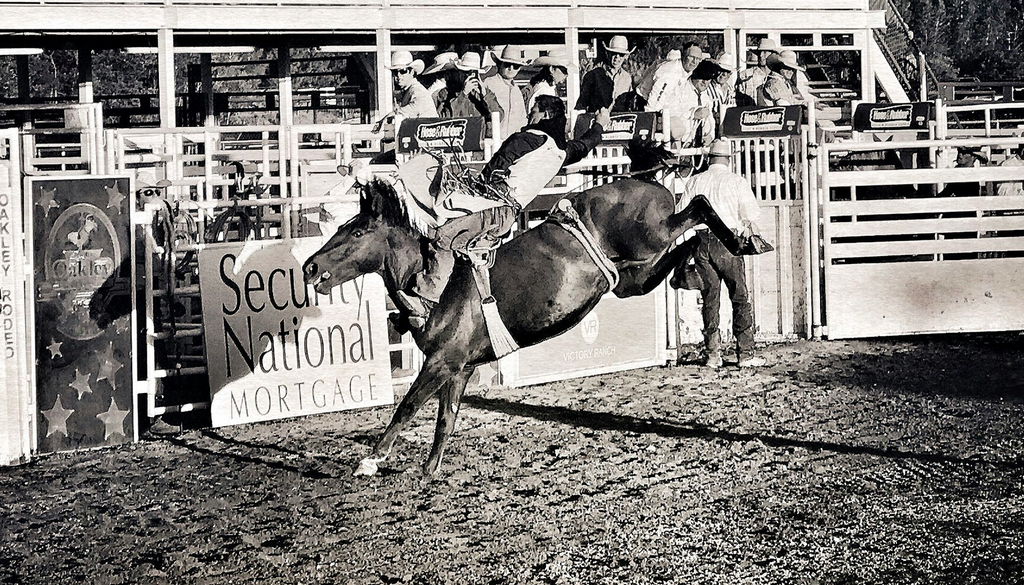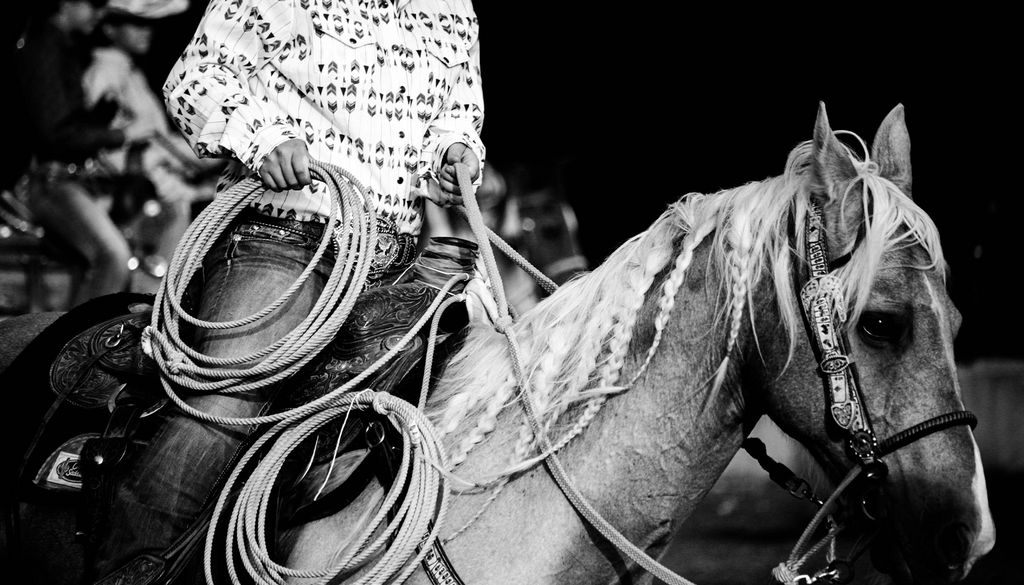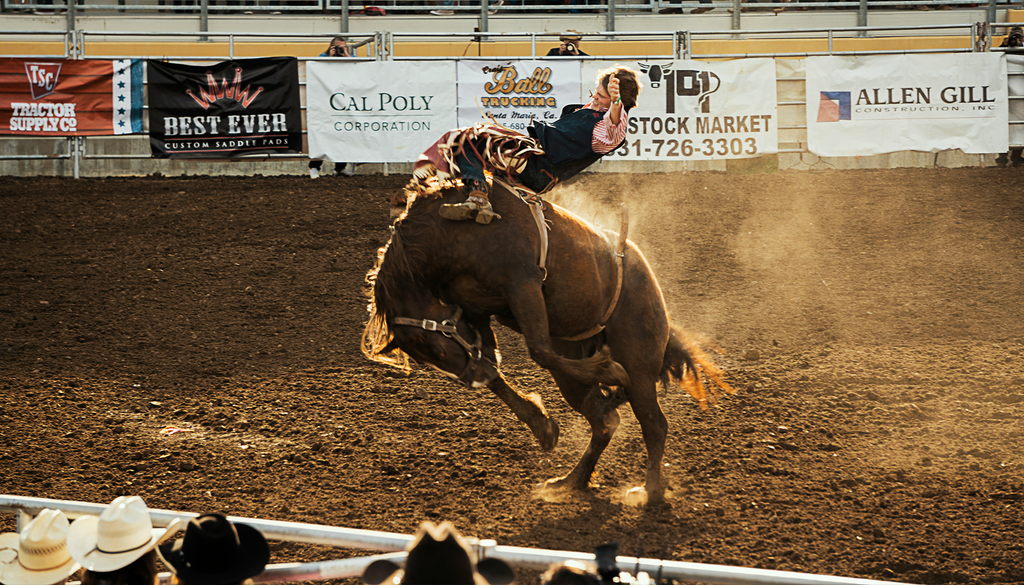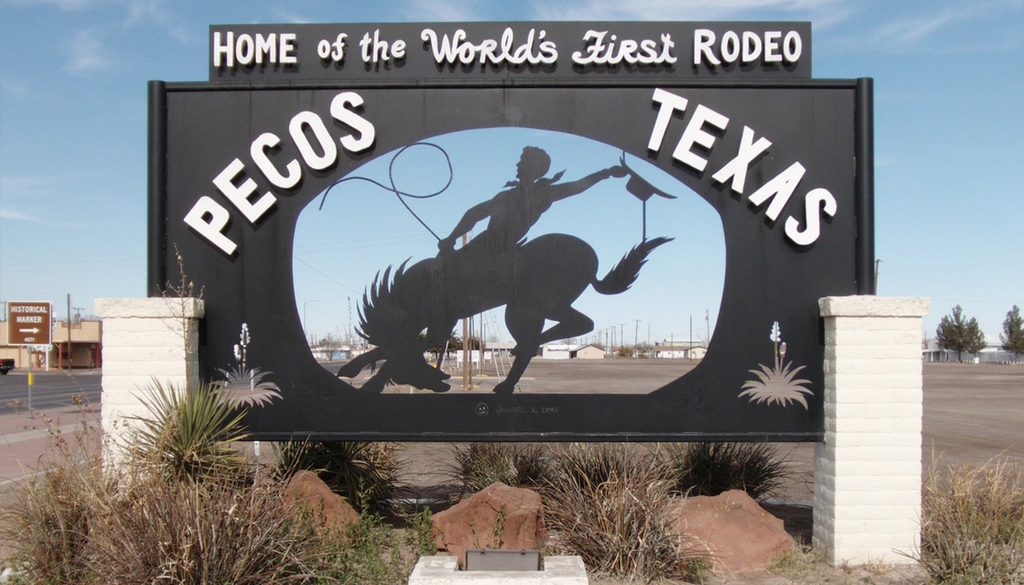In the untamed landscapes of the American West, among the cactus and vast plains, the rodeo was born from the everyday work of cowboys. These early contests of skill, born from the necessity of ranch life, laid the foundation for what would become a defining aspect of American culture.
The essence of rodeo, blending courage, skill, and competition, captured the spirit of freedom and the tough, resilient nature of the people who lived by the cowboy code.

From Ranch Work to Arena Sport: The Evolution of Rodeo
Rodeo's journey from informal ranch competitions to a formalized sport is a tale of community, innovation, and the American spirit of competition. As railroads spread and the West became more accessible, towns looking to attract visitors and celebrate their heritage turned to the rodeo.
The journey began in the late 19th and early 20th centuries, with rodeo's first organized event reportedly taking place in Pecos, Texas, in 1904. This event laid the foundation for a structured competition, setting the stage for the sport's burgeoning popularity.
The Pendleton Round-Up and Calgary Stampede soon followed, introducing professional contestants and larger prize pools, further contributing to rodeo's formalization and appeal .
These events quickly grew from local gatherings to major sporting events. This period saw the birth of rodeo as we know it, complete with timed events, bronc riding, and roping contests, evolving with rules that emphasized both the safety of participants and the welfare of animals.

The Formation and Impact of Rodeo Associations
The formation of the Professional Rodeo Cowboys Association (PRCA) in 1945, initially known as the Cowboys’ Turtle Association, was crucial in standardizing rules and establishing a professional tour, which included the prestigious National Finals Rodeo (NFR). The International Rodeo Association (IRA) and the National Intercollegiate Rodeo Association (NIRA) also played pivotal roles in expanding the sport's professional and collegiate levels, respectively .
Women also played a significant role in the evolution of rodeo. The first all-women's rodeo in 1929 marked a significant milestone, leading to the establishment of the Women’s Professional Rodeo Association (WPRA) in 1948. This era also saw the introduction of festive gatherings like the Texas Cowboys’ Christmas Ball, blending traditional cowboy culture with organized rodeo competition .

The Golden Age of Rodeo: Stars and Legends
The early 20th century heralded the golden age of rodeo, as legends like Bill Pickett, the inventor of bulldogging, and trick riders like Fox Hastings, became household names. This era also saw the rise of rodeo's first superstar, Jim Shoulders, a man whose prowess in the arena would become the stuff of legend.
This era also saw the rise of rodeo as a family event, with participants traveling the circuit together, and introduced groundbreaking events like the National Finals Rodeo (NFR), solidifying rodeo's place in American sports culture.

Preserving the Spirit: Rodeo Culture Today
Rodeo remains a vibrant part of American culture, a bridge between the past and present. Organizations like the Professional Rodeo Cowboys Association (PRCA) and the Women's Professional Rodeo Association (WPRA) work tirelessly to preserve this heritage, through youth rodeos, educational programs, and rigorous animal welfare standards, the rodeo community works to ensure that the legacy of rodeo is preserved for future generations.

Conclusion: The Legacy of Rodeo
The history of rodeo is a testament to the enduring spirit of the American West, a narrative of bravery, skill, and the unbreakable bond between humans and animals. As we look towards the future, the legacy of rodeo continues to inspire, reminding us of the values that make this sport a timeless tradition.
Are you captivated by the rich history and thrilling action of rodeo? Don’t stop here! Dive deeper into the world of rodeo with our weekly blogs, where we share the latest news, stories, and insights into this fascinating sport. And for those who want to live the rodeo spirit, visit our store to find the perfect rodeo apparel, gear, and accessories. Dress the part and feel the excitement of the rodeo, whether you’re in the arena or cheering from the stands.
Looking to catch a rodeo event this March in Texas? Check out our blog post detailing the dates and locations of must-see rodeos around the state. Don’t miss the chance to experience the tradition, competition, and camaraderie of a Texas rodeo firsthand.





1 comment
I was at the understanding that the first rodeo was in south Australia in the 1800s with calf roping. I might be wrong.